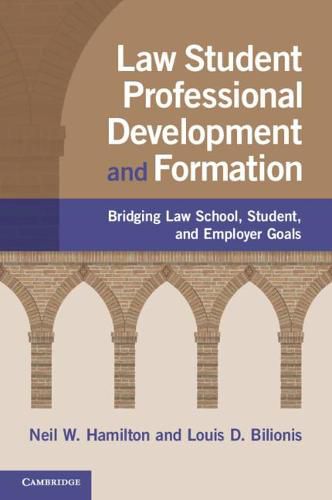Readings Newsletter
Become a Readings Member to make your shopping experience even easier.
Sign in or sign up for free!
You’re not far away from qualifying for FREE standard shipping within Australia
You’ve qualified for FREE standard shipping within Australia
The cart is loading…






Law schools currently do an excellent job of helping students to ‘think like a lawyer,’ but empirical data show that clients, legal employers, and the legal system need students to develop a wider range of competencies. This book helps legal educators to understand these competencies and provides practical ways to build them into a law school curriculum. Based on recommendations from the American Bar Association, the American Association of Law Schools, and the Carnegie Foundation for the Advancement of Teaching, it will equip students with the skills they need not only to think but to act and feel like a lawyer. With this proposed model, students will internalize the need for professional development toward excellence, their responsibility to others, a client-centered approach to problem solving, and strong well-being practices. These four goals constitute a lawyer’s professional identity, and this book empowers legal educators to foster each student’s development of a professional identity that leads to a gratifying career that serves society well. This title is Open Access.
$9.00 standard shipping within Australia
FREE standard shipping within Australia for orders over $100.00
Express & International shipping calculated at checkout
Law schools currently do an excellent job of helping students to ‘think like a lawyer,’ but empirical data show that clients, legal employers, and the legal system need students to develop a wider range of competencies. This book helps legal educators to understand these competencies and provides practical ways to build them into a law school curriculum. Based on recommendations from the American Bar Association, the American Association of Law Schools, and the Carnegie Foundation for the Advancement of Teaching, it will equip students with the skills they need not only to think but to act and feel like a lawyer. With this proposed model, students will internalize the need for professional development toward excellence, their responsibility to others, a client-centered approach to problem solving, and strong well-being practices. These four goals constitute a lawyer’s professional identity, and this book empowers legal educators to foster each student’s development of a professional identity that leads to a gratifying career that serves society well. This title is Open Access.